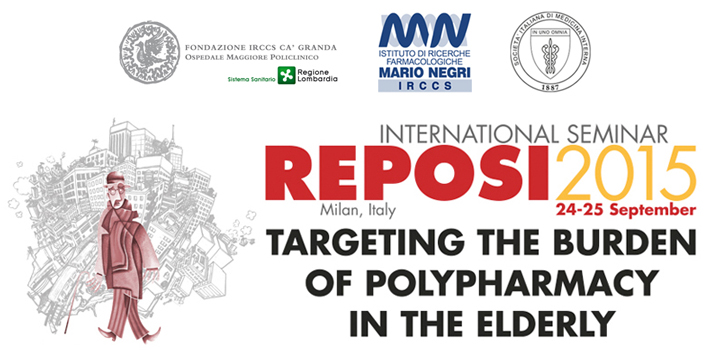The huge demographic changes that are occurring in populations of high- and middle-income countries in Europe are leading to a dramatic increase in the number of the oldest citizens (80+ years), who in the next 20-30 years are expected to represent 10% of the total continent population. This age group is likely to be affected by multiple chronic diseases, which will lead almost inevitably to the concomitant prescription of multiple drugs and thus to a high risk of their incompatibility that may have severe adverse effects.
For instance, one of the main issues and a critical problem in the field of multimorbidity and polypharmacy is the use of anticoagulants in the frame of the treatment of atrial fibrillation and venous thromboembolism, because many of the other drugs that the elderly take may interfere with the hemostasis and thus increase the risk of bleeding.
The purpose of this Seminar is to gather a number of European experts in order to evaluate the methods and procedures they have developed in their clinical practice and research projects to improve multiple drug prescription and to avoid the related mishaps.
The objective is not only to decrease the risk of adverse effects of polypharmacy but also to improve quality of life and symptom relief in the elderly, i.e. the most important clinical outcomes in people with limited life expectancy.
The Seminar scientific program will aim to define and categorise appropriate prescribing, critically review the instruments currently available to tailor polypharmacy, to control its effects and to discuss the effects of available optimisation strategies in the elderly.
Finally, the Seminar has the goal to suggest directions for future research and practice in the field of multimorbidity and related polypharmacy.
